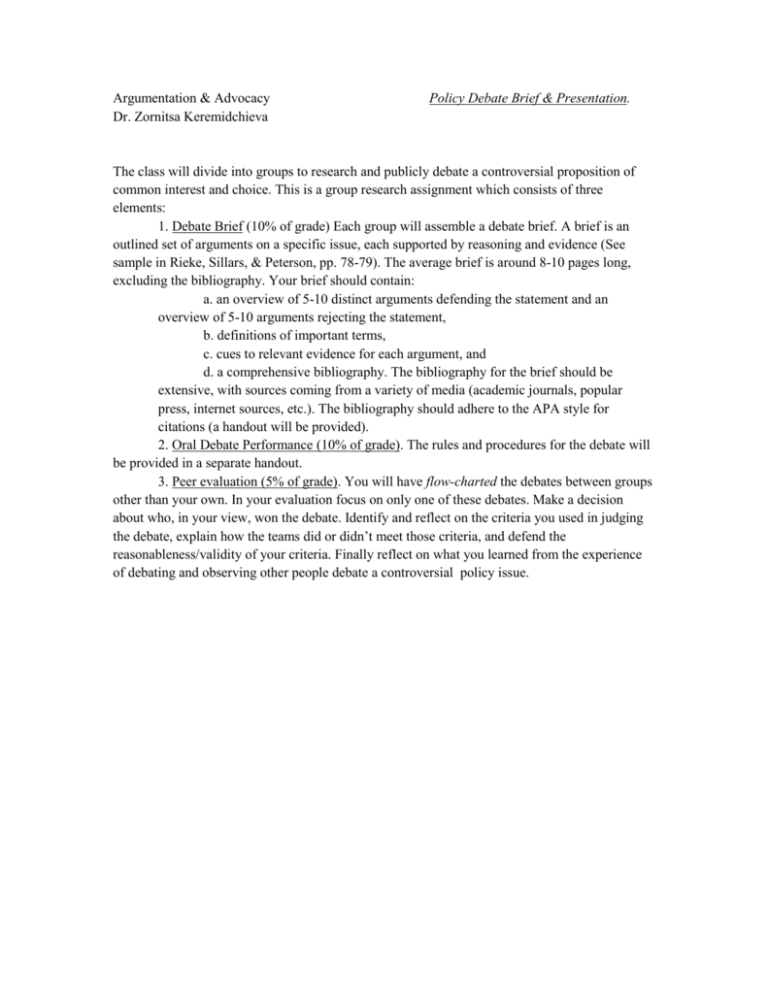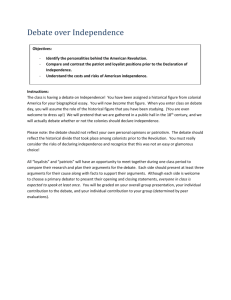policy debate assignment
advertisement

Argumentation & Advocacy Dr. Zornitsa Keremidchieva Policy Debate Brief & Presentation. The class will divide into groups to research and publicly debate a controversial proposition of common interest and choice. This is a group research assignment which consists of three elements: 1. Debate Brief (10% of grade) Each group will assemble a debate brief. A brief is an outlined set of arguments on a specific issue, each supported by reasoning and evidence (See sample in Rieke, Sillars, & Peterson, pp. 78-79). The average brief is around 8-10 pages long, excluding the bibliography. Your brief should contain: a. an overview of 5-10 distinct arguments defending the statement and an overview of 5-10 arguments rejecting the statement, b. definitions of important terms, c. cues to relevant evidence for each argument, and d. a comprehensive bibliography. The bibliography for the brief should be extensive, with sources coming from a variety of media (academic journals, popular press, internet sources, etc.). The bibliography should adhere to the APA style for citations (a handout will be provided). 2. Oral Debate Performance (10% of grade). The rules and procedures for the debate will be provided in a separate handout. 3. Peer evaluation (5% of grade). You will have flow-charted the debates between groups other than your own. In your evaluation focus on only one of these debates. Make a decision about who, in your view, won the debate. Identify and reflect on the criteria you used in judging the debate, explain how the teams did or didn’t meet those criteria, and defend the reasonableness/validity of your criteria. Finally reflect on what you learned from the experience of debating and observing other people debate a controversial policy issue.





